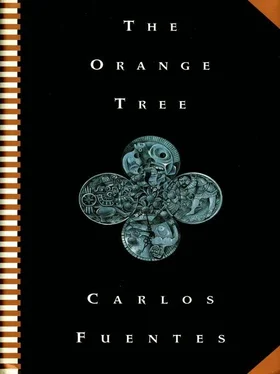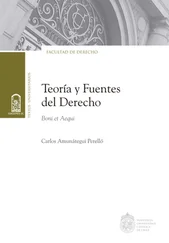We revoked the edicts of expulsion for Jews and Moors. They returned with the frozen keys of the houses they’d abandoned in Toledo and Seville in order to unlock once again the wooden doors and to put back into their clothes-presses, with burning hands, the old prayer of their love for Spain, the cruel mother who expelled them and whom they, the children of Israel, never stopped loving despite all her cruelties … And the return of the Moors filled the air with songs sometimes deep, like a sexual moan, sometimes high, like the voice of the muezzin punctually calling the faithful to prayer. Sweet Mayan songs joined those of the Provençal troubadours, the flute joined the cittern, the flageolet joined the mandolin, and from the sea near the Port of Santa María emerged sirens of all colors who had accompanied us from the islands of the Caribbean … All those of us who contributed to the Indian conquest of Spain immediately felt that a universe simultaneously new and recovered, permeable, complex, and fertile, had been born from the contact among the cultures, frustrating the fatal, purifying plan of the Catholic Kings, Ferdinand and Isabella.
But don’t think the discovery of Spain by the Maya was an idyll. We could not restrain the religious atavism of some of our captains. The fact is, however, that the Spaniards sacrificed at the altars of Valladolid and Burgos, in the plazas of Cáceres and Jaén, had the honor of dying in a cosmic rite and not in one of those street fights so common in Spain. Or, to use a more gastronomic image: they might have died of indigestion just as well. It’s true that this rationale was badly understood by all the humanists, poets, philosophers, and Spanish Erasmists, who at the beginning celebrated our arrival, considering it a liberation, but who are now wondering if they haven’t simply exchanged the oppression of the Catholic Kings for that of some bloody popes and Indian chiefs …
But you will ask me, Jerónimo de Aguilar, born in Ecija, dead of buboes when the Great Tenochtitlán fell, and who now accompanies, like a distant star, my friend and comrade Gonzalo Guerrero, native of Palos, in the conquest of Spain: What was our main weapon?
And while we’d have to mention an army of two thousand Maya which sailed from the Bay of the Bad Fight in Yucatan, joined by squadrons of Carib sailors recruited and trained by Guerrero in Cuba, Borinquén, Caicos, and Great Abaco, we would immediately have to add another reason.
Disembarked in Cádiz, amid the most absolute astonishment, we gave the same answer (you’ve already guessed) as that of the Indians in Mexico: surprise.
Except that in Mexico, the Spaniards — that is, the white, bearded, and blond gods — were expected. Here, on the other hand, no one expected anyone. The surprise was total, because all the gods were already in Spain. The fact is they’d been forgotten. The Indians managed to reanimate the Spanish gods, and the greatest surprise, which I share with you today, readers of this manuscript which we two shipwrecked Spaniards abandoned for eight years on the Yucatan coast have stitched together, is that you are reading these memoirs in the Spanish language of Cortés, which Marina, La Malinche, had to learn, and not in the Maya language that Marina had to forget or in the Mexican language which I had to learn to communicate in secret with the great but apathetic king Moctezuma.
The reason is obvious. The Spanish language had already learned to speak in Phoenician, Greek, Latin, Arabic, and Hebrew; it was ready now to receive Mayan and Aztec contributions, to enrich itself with them, to enrich them, give them flexibility, imagination, communicability, and writing, turning them into living languages, not the languages of empires but the languages of people and their encounters, infections, dreams, and nightmares as well.
Perhaps Hernán Cortés himself suspected it, and for that reason dissimulated his feelings the day he discovered Guerrero and me living among the Maya, dark, hair cropped short, an oar on my shoulder, wearing one ancient sandal with the other tied around my waist, an old, ruinous shirt, and a loincloth in even worse condition; Guerrero with his tattooed face and pierced ears … Perhaps, as if he’d guessed our destiny, the Spanish captain left Guerrero among the Indians so that one day he’d attempt his enterprise, a copy of his own, and conquer Spain with the same spirit Cortés conquered Mexico, which was that of bringing another civilization to one he considered admirable but stained here and there with excesses: sacrifice and fire, oppression and repression, humanity sacrificed to the power of the strong under the pretext of the gods … Once Hernán Cortés himself had been sacrificed to the game of political ambition, necessarily reduced to impotence so that no conquistador would ever dream of placing himself above the power of the Crown, and humiliated by the mediocre, suffocated by the bureaucracy, rewarded with money and titles when his ambition had been exterminated, did Hernán Cortés have the brilliant intuition that if he pardoned Gonzalo Guerrero, Gonzalo would return with a Mayan and Carib armada to get revenge for him in his native land?
I don’t know. Because Hernán Cortés, for all his malicious intelligence, always lacked that magic imagination which, on the one hand, was the weakness of the Indian world, but, on the other, might someday be its strength: its contribution to the future, its resurrection …
I say this because while accompanying Gonzalo Guerrero with my soul from the Bahamas to Cádiz, I myself became a star so I could make the voyage. My ancient light (all luminous stars, I now know, are dead stars) is only that of my questions.
What would have happened if what did happen didn’t?
What would have happened if what did not happen did?
I speak and ask questions from death because I suspect that my friend, the other shipwrecked Spaniard Gonzalo Guerrero, was too busy fighting and conquering. He doesn’t have time to tell stories. More to the point: he refuses to tell stories. He has to act, decide, order, punish … On the other hand, from death, I have all the time in the world to tell stories. Even (especially) stories about the deeds of my friend Guerrero in this affair of the conquest of Spain.
I fear for him and for the action he has undertaken with such success. I wonder if an event that isn’t narrated takes place in reality. Because what isn’t invented is only chronicled. Moreover, a catastrophe (all wars are catastrophes) is disputed only if it’s told. The telling outlasts the war. The telling disputes the order of things. Silence only confirms that order.
Which is why, in telling, I necessarily wonder where the order is, the moral, the law in all this.
I don’t know. Nor does my brother Guerrero, because I’ve infected him with a painful dream. He goes to bed in his new headquarters, the Alcazar in Seville, and his nights are unquiet because the painful gaze of the last Aztec king, Guatemuz, pierces them like a ghost. A cloud of blood covers his eyes. Whenever he feels his vision blur, he lowers his eyelids. One is made of gold, the other silver.
When he wakes up, weeping over the fate of the Aztec nation, he realizes that instead of tears, down one cheek ran gold and down the other silver, cutting a furrow in them as a knife would, leaving a permanent wound in them which, may it please God, death has healed.
This, I realize, is a doubtful thing. On the other hand, my only certitude, you see, is that language and words triumphed on the two shores. I know because the form of this tale is like a countdown, which has been associated too often with mortal explosions, overcoming a rival in the ring, or apocalyptic events. I’d like to use it today, beginning with ten and ending with zero, to indicate instead a perpetual rebeginning of stories perpetually unfinished, but only on condition that they are presided over, as in the Mayan story of the gods of Heaven and Earth, by language.
Читать дальше












